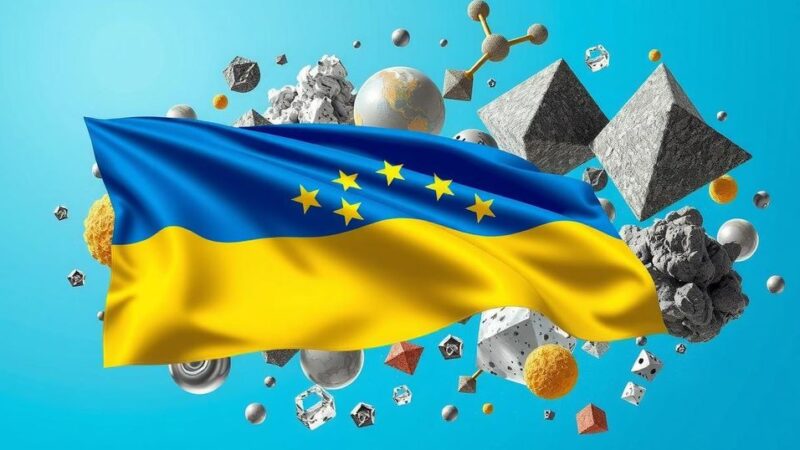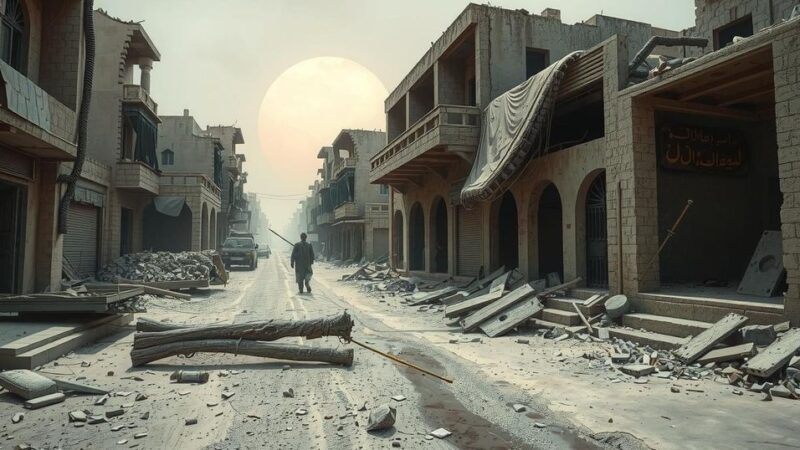The DRC is negotiating a strategic minerals deal with the Trump administration to secure US support against M23 rebels and Rwandan intervention. The partnership would involve access to vast mineral resources, while addressing concerns about governance and transparency in negotiations. US sanctions against Rwanda indicate a potential shift in geopolitical dynamics, with ongoing implications for Congolese economy and international partnerships.
The Democratic Republic of the Congo (DRC) is engaging in preliminary discussions with the Trump administration concerning a strategic minerals deal to bolster US support against M23 rebels and Rwandan military actions in eastern DRC. The urgency of this agreement arises as the DRC possesses significant reserves of cobalt, coltan, copper, and lithium, integral to advanced technologies across various sectors, including defense and energy transition.
The US State Department has expressed openness toward developing a mining partnership with the DRC. Congolese authorities aim to hinder Rwandan influence, as the M23 coalition, backed by Rwanda, has intensified military offensives since January, placing the DRC’s military under severe stress.
In a recent interview, President Felix Tshisekedi outlined the intention to offer the US and Europe access to the nation’s mineral wealth, which is currently dominated by China. Tshisekedi views this potential deal as a means to gather Western support, thereby enhancing national security amid ongoing threats. The basics of the proposed partnership also include enhancing the capabilities of the Congolese armed forces.
Details of the proposal, driven by a letter from a Congolese senator to US Secretary of State Marco Rubio, suggest a partnership encompassing access to mineral resources and control over a deep-water port for exports. However, experts criticize the viability of such cooperation, citing inconsistencies with US military policy and the prevailing military challenges facing the DRC.
Concerns about governance issues permeate the discussions, with local experts warning that the urgency created by the security crisis should not compromise the economic rights of the Congolese populace. Transparency in negotiations is particularly stressed, given the potential social impacts of any agreements made.
Congolese officials assert that their strategy aims more to diversify international partnerships rather than trade minerals for security. The government believes direct dealings with the US could hinder illicit mineral trafficking to Rwanda, ultimately benefitting the DRC’s economy.
Recent US sanctions against Rwandan officials signal a potential shift in Washington’s approach towards Rwanda, reflecting an evolving geopolitical stance. The DRC’s push for US investment in mineral sectors serves as a direct challenge to China’s existing dominance in these resources, indicating a strategic pivot in Congolese foreign relations.
The prospect of an American mining agreement holds considerable appeal for both parties but presents operational hurdles, particularly as most mining concessions are already allocated. While there remains an interest from the US to engage in DRC’s mining sector, historical precedents may complicate future collaborations.
In summary, the DRC’s discussions with the Trump administration regarding a mining deal highlight crucial geopolitical dynamics amid escalating security concerns from M23 rebels and Rwandan forces. The anticipated agreement could reshape the balance of mining partnerships, particularly against China’s current dominance. However, concerns about governance and local economic benefits underscore the necessity for transparency and accountability in these negotiations.
Original Source: www.france24.com






